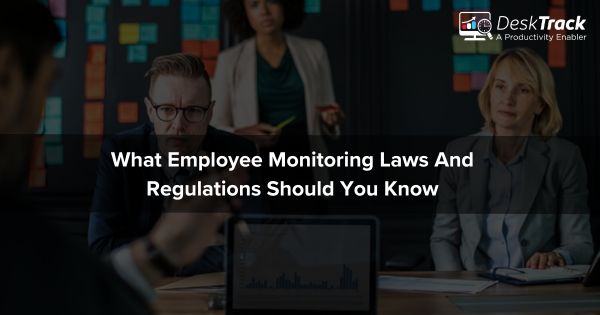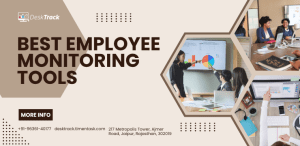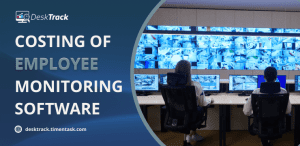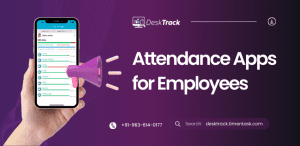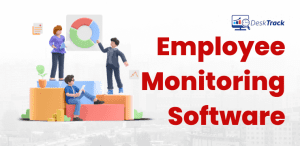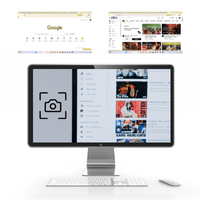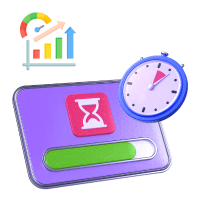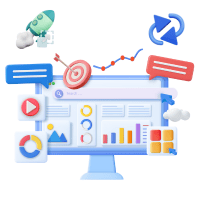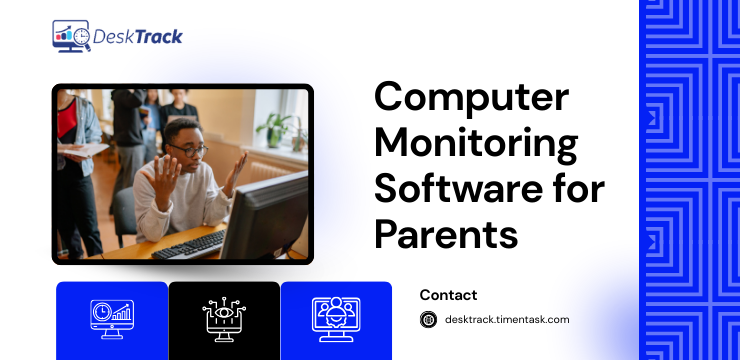We are in a time where all businesses are heavily relying on employee monitoring software in India, and at this time, understanding and navigating through the employee monitoring laws that keep an eye on these employee monitoring tools or employee tracking software is a very important thing for the organization, even if you are using a top employee monitoring software, but if it’s not abiding by the law, using it is not ethical.
In this article, we will be diving into the intricacies of the legal structure that handles all the best employee monitoring software, and we will be bringing to light the rules that surround these employee tracking software across different countries. This article will tell us how organizations and businesses can ensure compliance when they are using some of the best employee tracking software, especially when the software is used as employee monitoring software for a work-from-home culture.
The Basic Foundations that Govern Employee Tracking Software
A basic understanding of the foundational principles that govern employee monitoring software throughout the globe is very important. And while understanding these Foundation principles, we will consider all the parameters, which include ethical considerations, the requirement of consent, and respecting the thin line between productivity and privacy.
Employee Monitoring Laws Related To Employee Monitoring Tools In The United States:
Let’s discuss the United States segments employee monitoring software
Employee Monitoring Tools are Broadly Classified into four Segments in the United States:
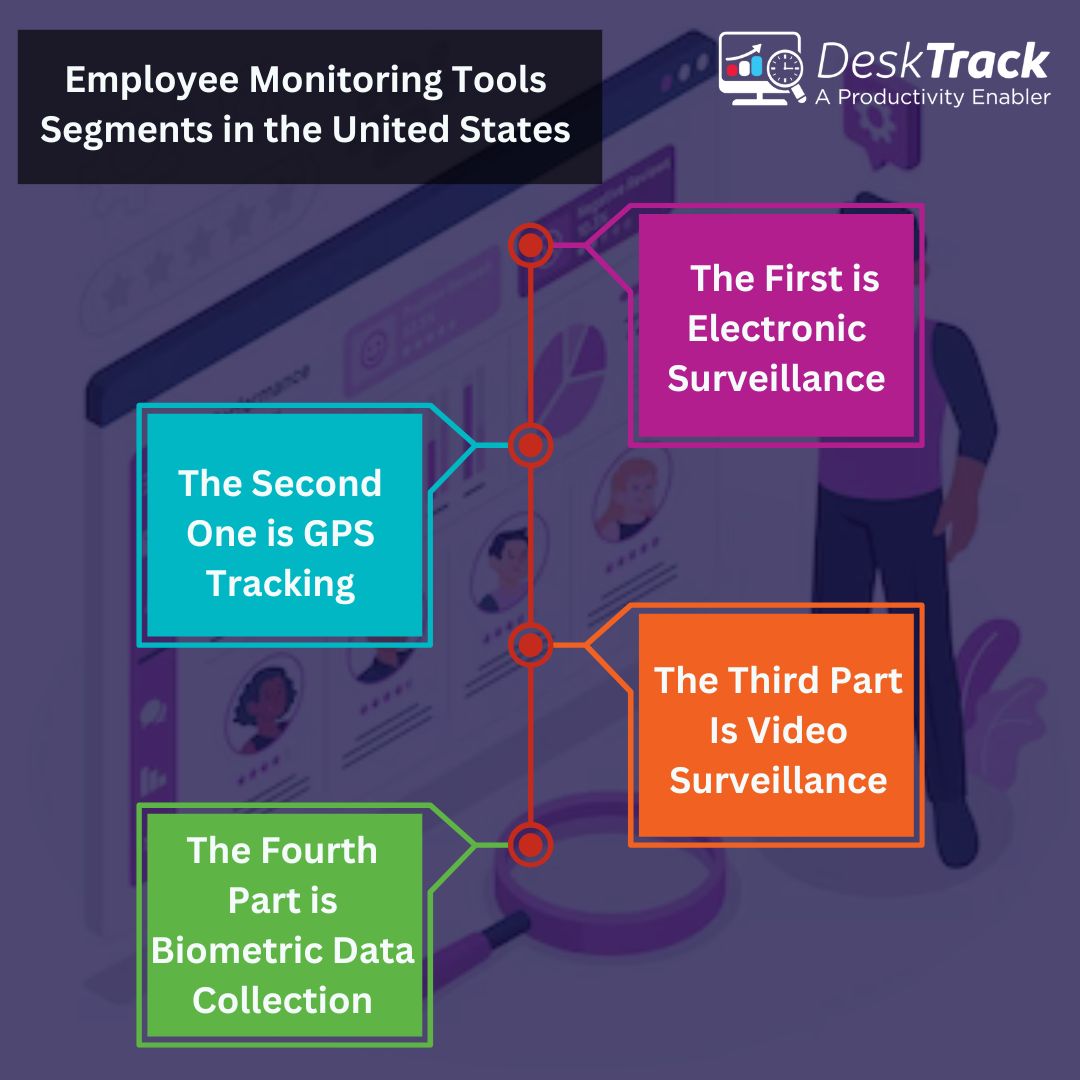
1. The First is Electronic Surveillance: this happens when an employee monitoring software is employed to monitor digital activities, which include email, browsing history, application usage, etc.
2. The Second One is GPS Tracking: In this case, some employers use GPS technology as employee monitoring software, which helps in tracking vehicles that are owned by the company, and hence the location of the workforce is tracked during working hours. Nowadays Geo fencing is in trend,which helps the businesses know that the team is working from a specific location and not changing location on a regular basis. In the case of sales teams or for teams that go out in the field again the businesses install an Employee Monitoring System which tracks the location throughout the working time.
3. The Third Part Is Video Surveillance: Today we see that the installation of cameras at workplaces and at home is a must to ensure safety and security. Cameras are not meant to just record the activity but they mainly help in knowing employee behavior Patterns along with playing the role of an employee monitoring tool. As acceptance came for security cameras in employees at the workplace, it’s time to get acceptance for the best employee time tracking software as well.
4. The Fourth Part is Biometric Data Collection: most organizations today use biometrics in one form or another. Either in the form of fingerprints or facial recognition, these biometric data are mainly employed for attendance tracking and to provide access control.
The Employee Monitoring Laws Governing Employee Monitoring Software:
Now Let Us Discuss The Employee Monitoring Laws Governing Employee Monitoring Software:
Firstly, We Will be Discussing the Federal Laws:
- Electronic Communications Privacy Act (ECPA): This “Law Electronic Communications Privacy Act” works as a preventive measure which controls the modes of electronic communication. With the help of this law the employer has authority to monitor and track employee communications, if the communication is done within the scope of business boundaries and the permission of the workforce is involved, so it is safe to conclude that , the Businesses can track the employee communications during the working shift and can make data-driven decisions based on that communication.
- Stored Communications Act (SCA): The Stored Communications Act prohibits the employer from unauthorized access to stored electric communications.
- State Laws: As different states have different policies in the US, some states implement additional regulations that govern employee privacy and monitoring. Hence, employee monitoring software requires explicit consent from employees before monitoring their electronic communications.
Make Your Workday More Productive
Time tracking and work management can help you reach your goals faster.
Try 15 Days for Free

Employee Monitoring Laws in the European Union
Employee Monitoring Laws Related to Employee Monitoring Tools in the European Union:
GDPR ( General Data Protection Regulation)
This may be defined as a monumental framework that reshapes data privacy and protection standards within the European Union and influences global practices. GDPR came into existence in May 2018 as a framework to make the domain of data security and the right to privacy more effective.
The Objective of GDPR:
The GDPR acts as a framework that grants individuals greater control over their data. GDPR helps the individuals to have rights like access, rectification, erasure, and data portability. GDPR ensures that organizations follow compliance and transparency is maintained during data processing and collection activities. There should be very clear consent mechanisms and a detailed record of data processing and collection activities.
Employee Monitoring Laws in India that Regulate Top Employee Monitoring Software:
Just like many other countries, India also grapples with maintaining the balance between the employer’s requirement for monitoring to ensure productivity and the protection of employees’ rights and privacy. In India, the laws that regulate DeskTrack employee productivity monitoring software are designed by a mix of statutory laws and various other sector-specific regulations.
IT Act (the Information Technology Act 2000)
The Information Technology Act consists of legal rights for electronic monitoring, and it mainly focuses on the protection of electronic records and communication. IT states that the data of the workforce can only be used for monitoring productivity and not for personal gains.
Conclusion
With all the above-mentioned facts, it can be easily concluded that technically no country in the world is against the implementation of some of the best employee tracking software unless the software does not breach the privacy of employees and the monitoring is done from the perspective of enhancing productivity. Businesses should have a prudent approach towards the data they collect from the workforce, as they are morally and ethically supposed to navigate through all the employee monitoring laws and regulations to make sure these employee monitoring tools are used for the ethical and legal practices of the business.
When we look deep into the employee monitoring tools and the rules that should be followed, we can conclude that DeskTrack is one of the tools that strikes the right balance between the needs of the businesses and the privacy of the employees. DeskTrack abides by all the compliance and legal architecture and hence does not track the key logs, voice, etc., hence DeskTrack emergence as the best employee tracking software in India and across the globe.
